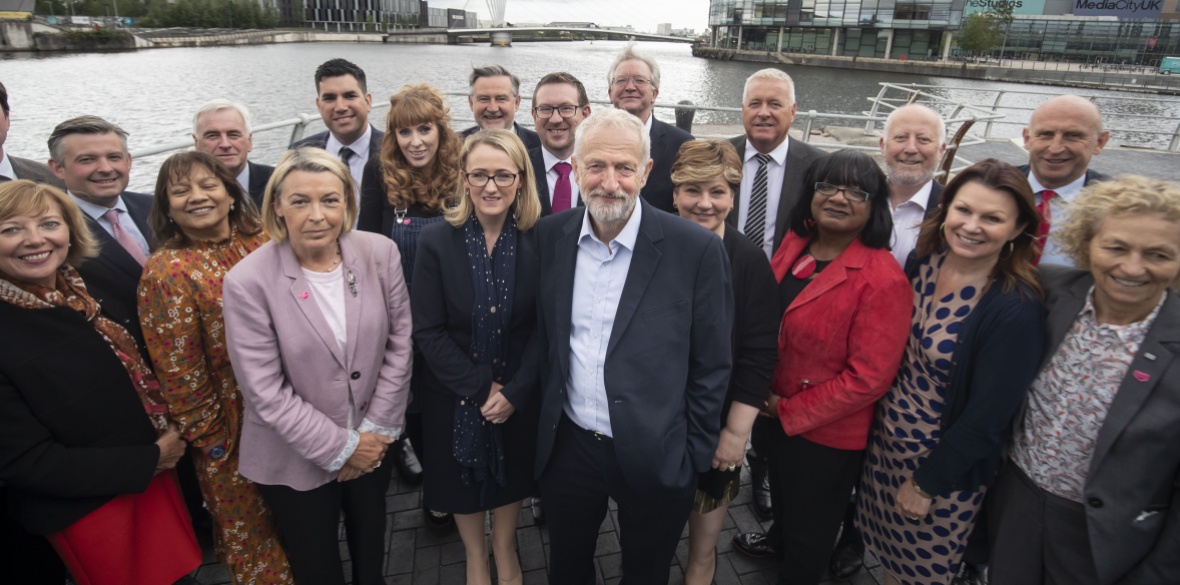This is the last article you can read this month
You can read more article this month
You can read more articles this month
Sorry your limit is up for this month
Reset on:
Please help support the Morning Star by subscribing here
OUR COUNTRY is in the grip of a manufacturing emergency. Manufacturing’s share of national economic output stood at 27 per cent in 1970, but by 2017 it was just 10 per cent.
Over the last 30 years, service sector output rose by 97 per cent, and by 2017 it was 79 per cent of the economy, up from 69 per cent in 1990. By September last year, services accounted for 83 per cent of workforce jobs.
In the three months to June, production contracted by 1.4 per cent, and even though services growth was far smaller than it has been, there was still growth.
Undoubtedly, Brexit planning, including the bringing forward of car plant shutdowns to April, had a significant impact, but successive governments’ failure to deliver a coherent industrial strategy is what has really led to the collapse of investment and confidence in British manufacturing.
This gross industrial sabotage has resulted in the loss of some 500,000 skilled manufacturing jobs over the past decade.
This is why, at the TUC Congress this week, my union Unite will be leading demands for the general council to get behind a campaign for an industrial strategy that will deliver real change, including a procurement policy that supports a “build local” strategy to invest in skilled jobs and apprenticeships, investment in research and development, and ending the housing crisis with the building of new council houses and refitting of existing stock.
But to rebalance our economy and support a “just transition” towards sustainable, long-term economic growth, we need a radical alternative political and economic vision.
We know we’ll never get that from the Tories. Only a progressive Labour government committed to proactive state support and intervention, working alongside trade unions and reversing the anti-union laws that shackle us, will deliver such a programme.
We need proper union access to workplaces and the restoration, promotion, extension and co-ordination of national and sectoral collective bargaining, alongside an integrated industrial and procurement strategy with investment through national and regional investment banks.
As part of this, zero-hours contracts must be abolished and agency worker abuses ended.
Because it’s not just the deliberate lack of a coherent industrial strategy bringing unions, government and industry together that’s caused the shift to a short-term, precarious, low-pay economy.
Unions are central to our democracy, necessary to deal with industrial and investment questions. Yet the fundamentally undemocratic restrictions imposed on us, alongside the deliberate deindustrialisation of our heartlands, have undermined our ability to organise workers and assert our influence.
It’s the refusal by the Tories to engage with trade unionists as industry partners — unlike in countries such as Germany — to work together to develop strategies for scaling the challenges of automation and new technologies, including in the energy, steel, construction, automotive and transport sectors, that turn these things into threats rather than the opportunities they are for changing the lives of working people for the better. I find it astonishing.
The dramatic changes that the Tories made to collective bargaining during the 1980s also made it much more difficult to organise workers on a sectoral basis.
Until then, the living standards of millions of people had taken great strides forwards. But collective bargaining coverage slipped — by 1990, with the Thatcher laws in place and market deregulation under way, it had fallen to 55 per cent.
By the turn of the new millennium, only one in three workers was covered by a collective bargaining agreement.
It’s no accident that workers’ share of GDP in Britain declined from over 64 per cent in 1975 to 51 per cent now.
New Labour didn’t recognise the devastating impact that has on the economy and did nothing about it, instead continuing the neoliberal drive towards a flexible, predominantly service sector economy.
Let’s not forget that under the Blair and Brown governments, one million manufacturing jobs were lost.
It really is shameful that neither of them recognised that we can only deliver more and better public services with a vibrant manufacturing sector, and that failure means the challenge we face now to turn around the manufacturing decline and replace the race-to-the-bottom culture with a rate-for-the-job society, combined with the impact of this disastrous Tory no-deal Brexit, is all the greater.
Socially planned and controlled, with powerful, unshackled unions and organised labour and civil society deeply involved, the reindustrialisation of our country can be steered in the right direction and its benefits reaped by society as a whole through the provision of decent jobs and working lives, and better retirements.
This will, I am confident, give us what we need to begin the long journey back to an economy with sustained growth.
Len McCluskey is general secretary of Unite the Union.











